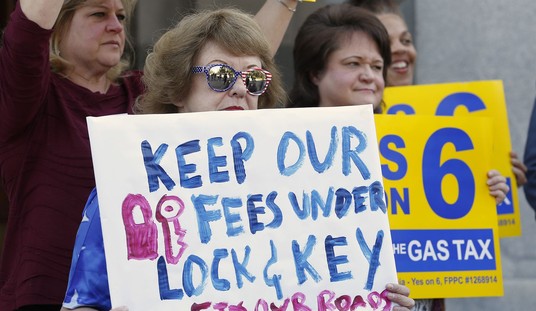Iran’s rejection of the recent EU deadline did not come as a big surprise to many Western countries; however, the consequences of Iran’s decision may come as a major surprise to its leadership.
By rejecting the offer of incentives, in one single move, Ayatollah Khamenei has managed to achieve what the U.S. has failed to do over the last three years, and that is to justify increased international pressure against Tehran.
This will come in two forms, economic and political. Economically, in all likelihood, there will be tougher sanctions imposed against Iran’s banks, and quite possibly Iranian shipping and air links. These may not be back-breaking, but they will create a noticeable dent in Iran’s economy.
What is likely to cause further damage is the political isolation in which Iran will find itself, especially in the Middle East. Nearly all of the leaders of the Persian Gulf emirates have until now been calling for U.S. engagement with Iran. Ayatollah Khamenei has shown that this does not work, even when the U.S. becomes directly involved.
It seems that rather than learn from America’s mistake of rejecting talks with Iran, as part of the “Grand Bargain” offered by Khamenei in 2003, Iran is imitating America’s mistake by refusing to accept the incentives offered by the EU and backed by the U.S.
It is a major red flag to those who fear Tehran: with such a clear-cut rejection of the diplomatic route, the rich sheikdoms now have cause for serious worry regarding the strong Iranian influence in Lebanon and Iraq.
We are likely to see increased Saudi assistance to Sunni groups in Iraq and Lebanon, as means of reducing Iran’s leveraging power in the region and to push it back to the negotiation table. But this also increases the chances of war in the region.
There may also be stepped-up covert military operations against Iran’s allies, as a message to Tehran that it should not rely too much on its military power. Iran’s leadership received its first reminder in March 2007, when the CIA, in a sophisticated covert operation, arranged the defection of General Ali Asgari, Iran’s top liaison to Hezbollah. This struck a heavy blow to Iran’s intelligence agency. Some believe that it was the information provided by Asgari which facilitated the successful assassination of top Hezbollah commander Imad Mughniyeh, with whom Asgari worked for many years.
Things certainly seem to be getting worse for Iran and her allies. According to news from Syria, General Suleyman, who was Assad’s top liaison man to Hezbollah, was assassinated last week. This shows a disturbing pattern of increased penetration inside Hezbollah, Syria, and Iran’s intelligence operation, something which can be used to weaken Iran’s hand in the region.
Iran has the option of pushing back by increasing its support for Hezbollah and Hamas, and for anti-U.S. insurgents in Iraq. However, it’s unlikely that these would make the international community bend.
When it comes to finding a diplomatic solution, the ball is in Tehran’s court. In the meantime, the international community must move quickly on further sanctions which target the wealth of Iran’s leadership, in order to show them that their belligerence has a direct relation to their bank accounts.
Should countries such as Russia and China balk from imposing tough sanctions against Iran, just as they did against Zimbabwe, they will push the Middle East dangerously close to having to live with a nuclear Iran or towards military confrontation.
The clock is ticking and the centrifuges are spinning. This truly is a race against time, which for now is on the side of Iran.









Join the conversation as a VIP Member